The timing of this post may at first appear ironic: I’ve just quit my job, cast off most of my possessions, and become a wandering writer and photographer.
This is the third time I’ve upped stumps and left a ‘home’ city. With each departure I reflect on all the beautiful people I’ve had the pleasure of befriending, and how I connected with them.
But this time with the ONE Project in mind, I also recall the advice asked of me by those planning their first departures. People wondering how to find “their people” in a new place, and kindle friendships.
Since rebuilding a completely new friendship network isn’t something most people do in their life – let alone twice – I’d like to share my philosophies and methods with you.
Note this is a longer than average post. But a more important-than-average subject.
There are 3 overarching principles that guide my approach. Within each principle, I’ve listed the individual tips.
Principle 1: There are a lot of folks in your new city, but few of them are “your people”. Random selection is futile. You need filters.
Meeting people at random is rarely going to result in a great friend. The most common (and laziest) filter people apply is their workplace. Though it can yield some results, for me this approach lacks diversity – people usually end up talking about work all the time. Plus my interests extend much wider than my job.
1) Find communities for your favourite activities.
Whether it’s joining an outdoor club, choir, community garden, language exchange, or knitting club. Sometimes you’ll even meet great people somewhere who are in such a club, and through them discover a new activity you love.
2) Select excellent flatmates, and the right neighbourhood.
I’m a huge fan of the ‘family’ provided my flatmates. They’re also a great resource for meeting new people. So be picky when selecting your flatmates and the neighbourhood you live. If it’s out in the ‘burbs, you’ll be more tempted to stay home and watch cat videos on YouTube, when you should be getting out there building friendships.
3) Go to house parties, not bars.
House parties are the single greatest way to connect with the awesome friends of your awesome friends. Nobody is a complete stranger, and there’s always a quiet enough spot to have great friendship-building discussions (somehow, it’s usually the kitchen). House parties will also save you money on drinks, and taxis (if there’s a couch).
4) Try ‘fishing’ for friends (the Boris method)
My mate Boris mentioned this one years ago. Go somewhere public and start doing something unusual or uniquely interesting (e.g. slacklining in a park, folding origami on the street).
What you’ll find is all sorts of other interesting people approaching you to chat. This method is brilliant in how little of your effort it requires, as it essentially induces a crowd-sourced self-selection process.
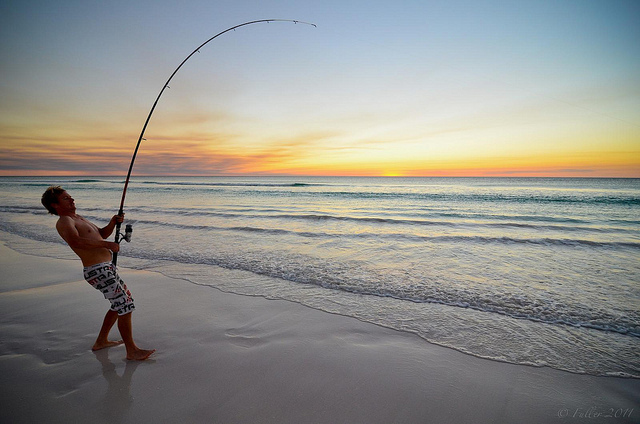
Principle 2: You need more than friends: you need a new family. So get deep and meaningful.
Without trying to disrespect my ‘original’ family (the one I’m genetically related to), the reason I’ve been able to happily live away from home since 2003 is because I’ve cultivated friendship-bonds as strong as family-bonds.
5) Connect with people who are open to deep and meaningful friendships.
These are typically other nomads who’ve also left their family and social networks behind. I find singles far better than couples, as the latter are already in an intimate pseudo-family and typically far less “in need” of deep and meaningful friendship.
6) Use immersive socialising to bond with people faster.
This is one of the most important methods for me. I reckon one weekend road trip or overnight camping adventure with a few new mates is worth more than a year of pub chats. Nothing is more conducive to deep and meaningful connections than spending hours beside people (in a car, at a campfire) chatting about life, the universe, and everything. So plan something that allows spending entire days together with your new friends.
7) Get involved in your community.
I felt too temporary in my first few years in Perth to get involved in my community. But once I did, it was a huge step up in building a ‘family’. Whether it’s community gardens, befriending local musicians, hanging with your neighbours, or building a community-owned wind farm. It helps a bit if you live in a great community (see tip #2).
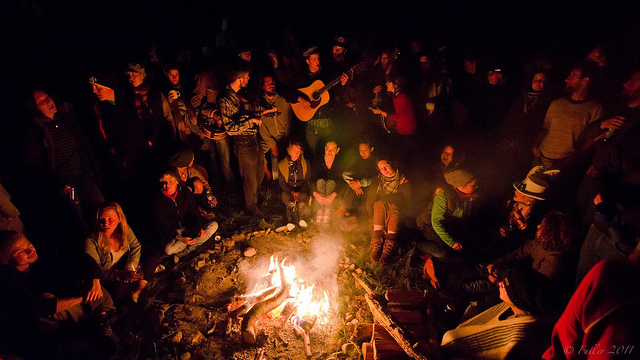
You don’t need to invite this many people.
Principle 3: Squeeze every drop from the opportunity. Don’t leave with regrets.
I used a technique called “future hindsight” to imagine myself, back in Canada, being asked (by others or my future self) about my years in Australia.
“Did you surf? Play the didgeridoo? Eat kangaroo? Scuba dive? Visit the Great Barrier Reef / Uluru / Kakadu / [other famous place]?”
Life is not about ticking things off a bucket list, nor satisfying others’ archetypical Australian experiences. But I wanted to satisfy my own inner voice by knowing that I didn’t waste the amazing experiential opportunity of living down under.
8) Understand the history, get amongst the culture.
I actually apply this to one to all new places I travel, not just where I intend to stay.
My preferred approach is to search Amazon books using keywords for my destination, filter to 4 or 5 star ratings, and skim through the descriptions to see which books speak to me. From the shortlist, I then read others’ reviews. I always find at least a couple excellent, enriching books.
This approach will provide a step-change in understanding your new place, give you plenty of ammunition for conversations with locals, and generally improve all aspects of your experience. Most locals also consider it a genuine sign of respect that you know about their country.
9) Get out there. Explore the urban nooks, natural landscapes, and far-flung corners of your new country.
I mentioned in #6 the benefits of roadtrips and camping. Depending on your country and access to a car, this may be another method (like train or bus rides), but the key point is Get Out There! Otherwise you may regret it later, and returning for a trip later will definitely be more difficult and expensive.
10) Take advantage of activities especially suited to your new city.
Having arrived from Vancouver I was a rock-head, and climbing was my primary activity in Perth. Though I did meet many of my besties, I also stubbornly suffered through the summer heat, burning my hands and feet on the rocks for the first three summers. There had to be something better to do with my summers.
I had little interest in charring and sandblasting myself on the beaches, and visited them less than a dozen times in those three years. But I knew all that water had to be good for something!
Surfing isn’t exactly Canada’s national sport – though heaps of people don 7mm wetsuits to brave the frigid waters. And after jealously watching kite surfers float through the famously windy and watery landscape of Perth each summer, I vowed to have a crack. It was the most challenging outdoor activity I’ve ever attempted, but now, the most rewarding and fun. Kitesurfing became my primary activity, and one uniquely suited to Perth, which draws people from all over the world.
I wonder now why I was so stubborn, so I encourage you to try such uniquely amazing local activities too.
11) Embrace the ‘clean slate’ opportunity – get rid of friendship baggage.
Encouraging people to dump friends is probably the most controversial piece of advice I give. But before you throw tomatoes, let me explain!
Most people (especially those moving to new cities) are undergoing personal development and growth. This means continuous change, especially if they’re in their 20s. And it doesn’t always go in the same direction as their friends’.
Thus we can find ourselves, many years later, maintaining friendships out of a perverse idea of respect; one based on historical obligation. I say perverse, because I think it’s actually disrespectful to maintain a friendship that’s no longer mutually enriching.
Moving away, even temporarily, provides an awkward-free opportunity to end those friendships, by simply not staying in touch. If/when you do return, it should also be even more pronounced just how much you’ve both changed – not just while you were away.
12) Try to avoid people from your home country, at first.
I love Canadians, and I’m sure you love your country-folk too. But presumably you didn’t just move hundreds or thousands of kilometres to bask in the company of a familiar culture. You can easily find your community later, but it’s too tempting a crutch when you first arrive. This is especially important if your intent is to learn the local language.
13) Don’t over-extend yourself maintaining international friendships. Be present.
Some friendships pick up after years without chatting; others you’ll want or need to actually maintain from a distance. For those you want to maintain, I only advise you to not to repeat my mistake.
A couple years into living in Aus I found myself struggling to embrace new local friendships, because of the time spent maintaining international ones. It was the epitome of not being present.
It’s easy to get carried away with communication, the time requirements not immediately obvious. An example: if you have just 10 friends back home you want to Skype and email monthly, it’ll take 24+ hours of your free time each month. That’s absurd.
What I eventually settled on was a frequency of a few times per year, either Skyping with or composing a deep and meaningful email to a handful of old friends. Sometimes we’d exchange the occasional book/film recommendations – this is nice for keeping you in similar loops.
Phew! You made it. I don’t expect you’ll remember them all, but if nothing else, here are those principles again: Use Filters; Get Deep and Meaningful; and No Regrets.
So go on, dive in, and get connecting!
-Mike



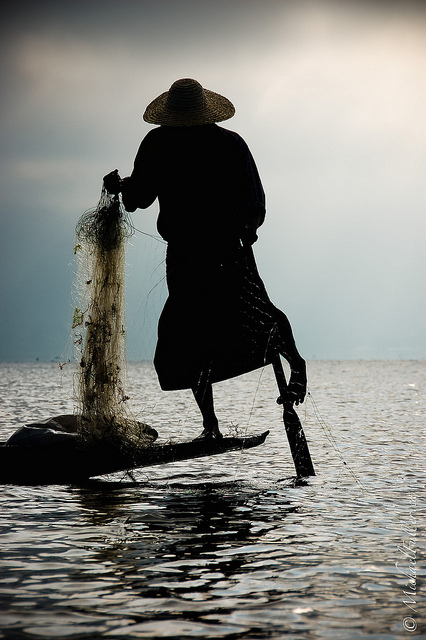
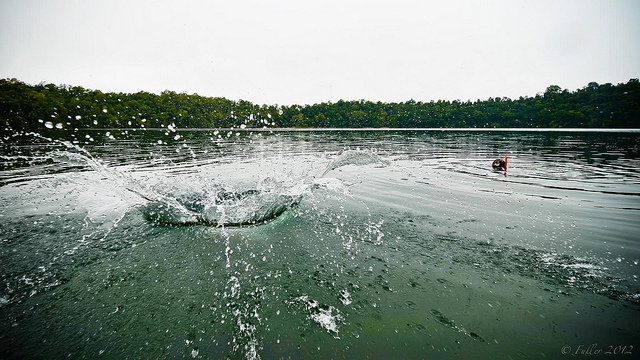
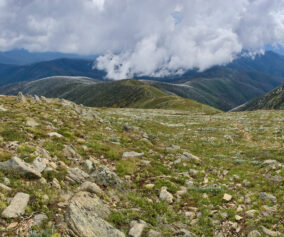







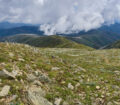








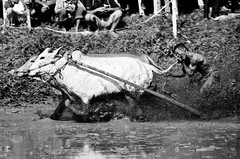

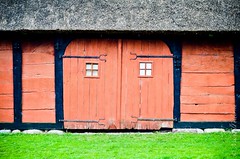
Yea, good information….how did you get so smart so young?
Geri,
Being neither smart nor young I’m entirely confused by your com(pli)ment!